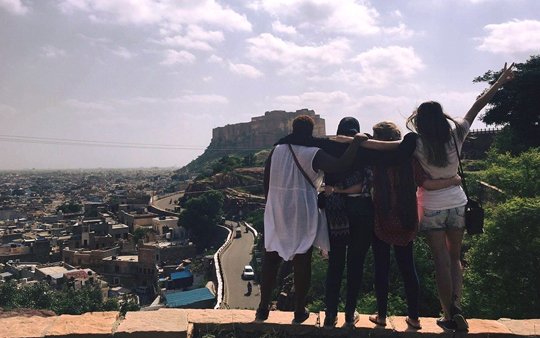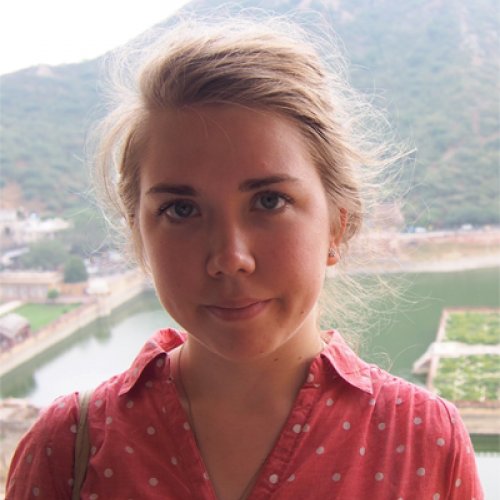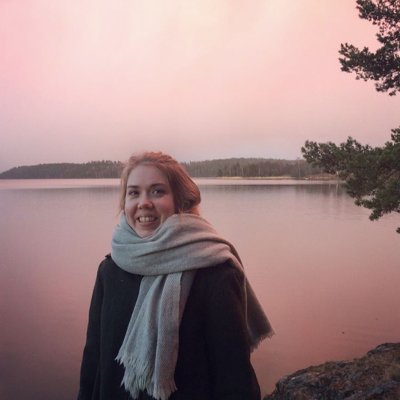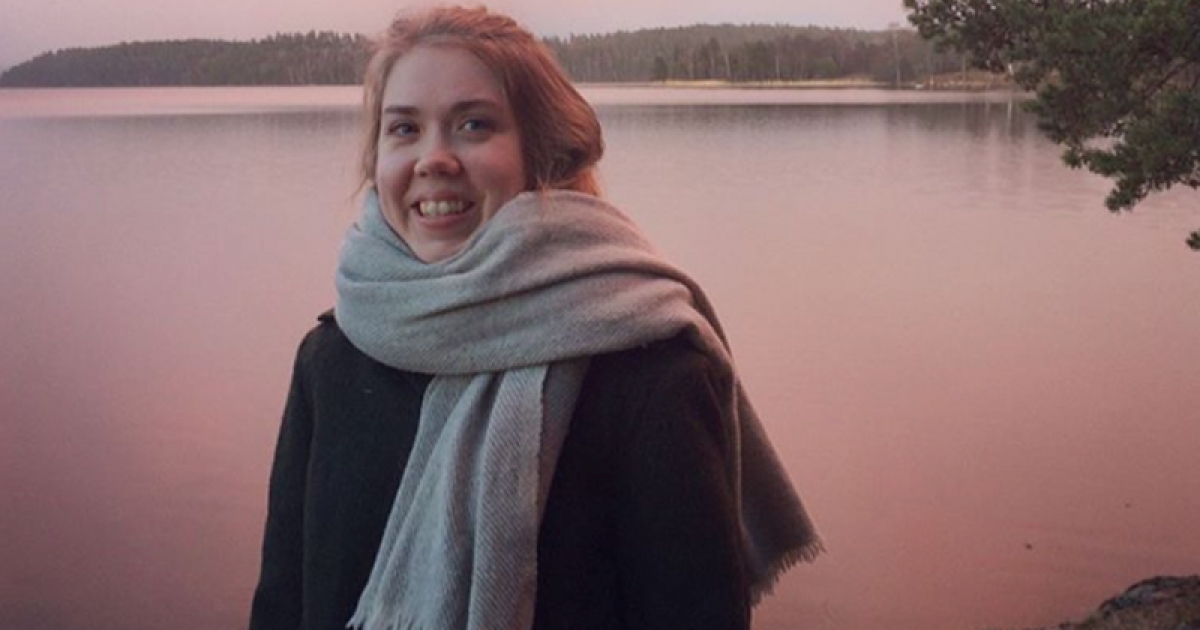“Somehow Things Always Seem to Work Out”
Maria is originally from Finland, and 25 years old. One of the core values of Maria is the belief in equality of all human beings, and working for gender equality is one of her passions. Professionally her goal is to be able to contribute to a better society, by focusing on her own abilities to do so. As a person she is driven by challenges, which led her to work in India for a shorter time, as well as going to Egypt for an internship. Maria Kangas' mentor is Elizabeth Filippouli.
Q: Tell us a few things about your country, and also your life's story!
A: I am originally from Finland, where I spent my first 19 years. Finland is a quite small country, up in the north, with long winters and summers where the sun some days wouldn’t set. It is very safe, and education is free! From there I moved to Sweden in 2010 to enrol in university studies at Lund University. There I first studied the Japanese language and soon ventured out to Japan on exchange studies at Fukuoka Women’s University.
There I got the opportunity to further study Japanese language and culture, as well as interact with other students with diverse backgrounds and cultures, which taught me a lot about the world around me, but also myself.
Back to Sweden, I decided to take up development studies as my major. Studying global development further enhanced my understanding of the world and a passion for working to improve it. I have since then continued to study Economic Demography, to learn more about quantitative methods and research, applying this to do research on gender equality. I am now to do an internship working with gender equality at the Swedish Ministry of Social Affairs and Health, as I want to continue to work on gender equality and development. I am also engaging with civil society organisations, to learn more about the situation of women in other countries and contexts.
Q: What is your view of the world as it is today? And how do you define the concept of a better world?
A: I believe that the world is constantly improving. We are far away from a perfect world, however, a lot of work is being put into improving the current state of affairs. The conditions for people today are still very unequal, and to me improving the access to equal opportunities and living standards is one of the keys to also improving the state of the world.
Q: What are some of the key challenges in your society?
A: Such as most of Europe today and Sweden is facing increasing xenophobia, and a growing gap between different socio-economic classes, creating a sense of insecurity in the society. Related to this is the integration of immigrants, as Sweden has had a liberal immigration policy, accepting a rather generous amount of refugees, also has a long history of labour migration. The Swedish labour market has, however, become hard to enter, and many refugees and immigrants are now struggling to translate their existing skill set into employment, which also affects their integration into the Swedish society.
Q: As a young individual what are a few of the hurdles that you had to overcome up until today?
A: For me establishing my own platform has been a struggle. Spending a lot of resources on learning I am now at the point of benefiting from my knowledge. Related to this I sometimes find it hard to make my voice heard, being a young woman. In the end, to me, it seems to be about finding your own confidence, despite the opinions of others.
Q: Why is the role of a mentor important for you?
A: As I am now close to finishing my studies I am struggling to find a way into a fulfilling professional life, where I feel that I could also make a positive impact. Questioning my own thoughts and motivations is also something very valuable for me, and I believe that the insights I am gaining can help me improve the world around me. The knowledge, experience and motivation shared by a mentor are invaluable.
Q: Do you have a lesson that life has taught you and you would like to share?
A: Somehow things always seem to work out. A majority of people are good, and if you are in a bad situation there will be someone who can help you in the end.

Q: Name a project, a foundation or a person in your country that you think is doing great work in helping improve other people's lives!
A: The Swedish foundation Kvinna till Kvinna is working in empowering women in conflicts and incorporating women into peace processes. I think their approach to capacity building in local organisations, rather than only donating has been a key part of their concept, also making their impact much larger and more sustainable.
Q: Share with us a phrase, a poem or a story that you love or you find interesting!
A: “ There are two bullets for every person in the world”.
This is a quote I first read in a report by Oxfam, and it has somehow stayed to me. I think it in very simple terms illustrates the wrong priorities present in the world today.
Q: Tell us one thing that you have learned from your mentor.
A: So far this process has helped me get more confidence, but also get a clearer perception of my own priorities, both in my private and professional life.




